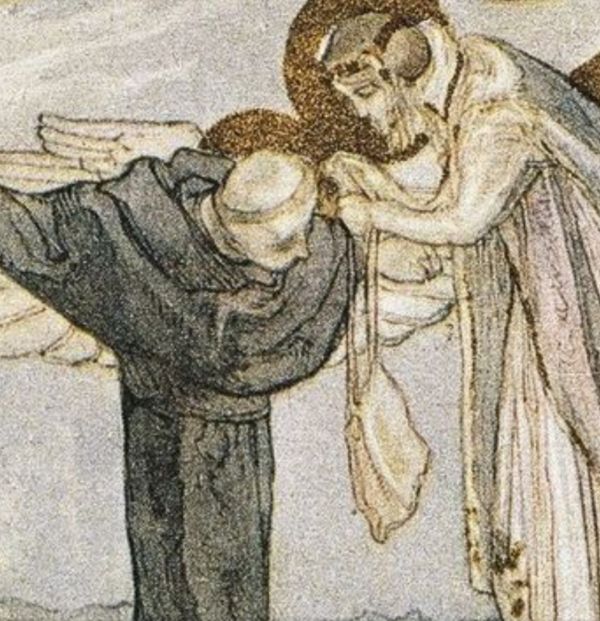Today's Gospel recounts Jesus' second proclamation of his death and resurrection, combined with the ability to know how to welcome the advancing Kingdom through the little ones.
He advises that the more one wants to be 'first', the more one must be a servant.
Small in stature, but truly endowed with that littleness that makes children in the heart, in his life Francis was minor in interiority
and knew how to recognise the bearers of the Gospel.
He was always concerned to welcome those who in their simplicity came to him in the name of Jesus.
The authority of the Sources informs us:
"Often thinking of the scandal given to the little ones, he felt an immense sadness, to the point of believing that he would have died of grief, if the divine goodness had not sustained him with its comfort" (FF 1139).
Francis himself described himself as "I, small and simple, inexperienced in speaking, have received the grace of prayer more than that of preaching [...]".
Again: "Nothing else did he possess, the Poor Man of Christ, but two pennies that he could bestow with liberal charity: his body and soul" (FF 1167).
And to his brothers he taught and recommended littleness in every happy or sad affair:
"Scarcity itself was for them abundance and superabundance, while, according to the advice of the Wise Man, they took pleasure not in greatness, but in the smallest things" (FF 1075).
The same simplicity of children with which he loved to receive the Word of God, he transferred it between the lines of life.
This episode helps us to understand the childlike heart he had received from God.
"At St. Mary of the Portiuncula they brought the man of God a sheep as a gift, which he accepted with gratitude, because he loved the innocence and simplicity that, by its nature, the sheep shows.
The man of God admonished the sheep to praise God and not to annoy the brothers at all. The sheep, in turn, as if feeling the pity of the man of God, put his teachings into practice with great care.
When she heard the friars singing in the choir, she would also enter the church and, without the need of a teacher, she would bend her knees, uttering tender bleats before the altar of the Virgin, Mother of the Lamb, as if impatient to greet her" (FF 1148).
By becoming a child at heart, Francis welcomed in simplicity the Kingdom that was coming to him, attesting in his concrete life the infancy of the Spirit that informed him.
«Whoever welcomes one of these children in my name welcomes me, and whoever welcomes me does not welcome me but him who sent me» (Mk 9:37)
Tuesday, 7th wk. in O.T. (Mk 9,30-37)












